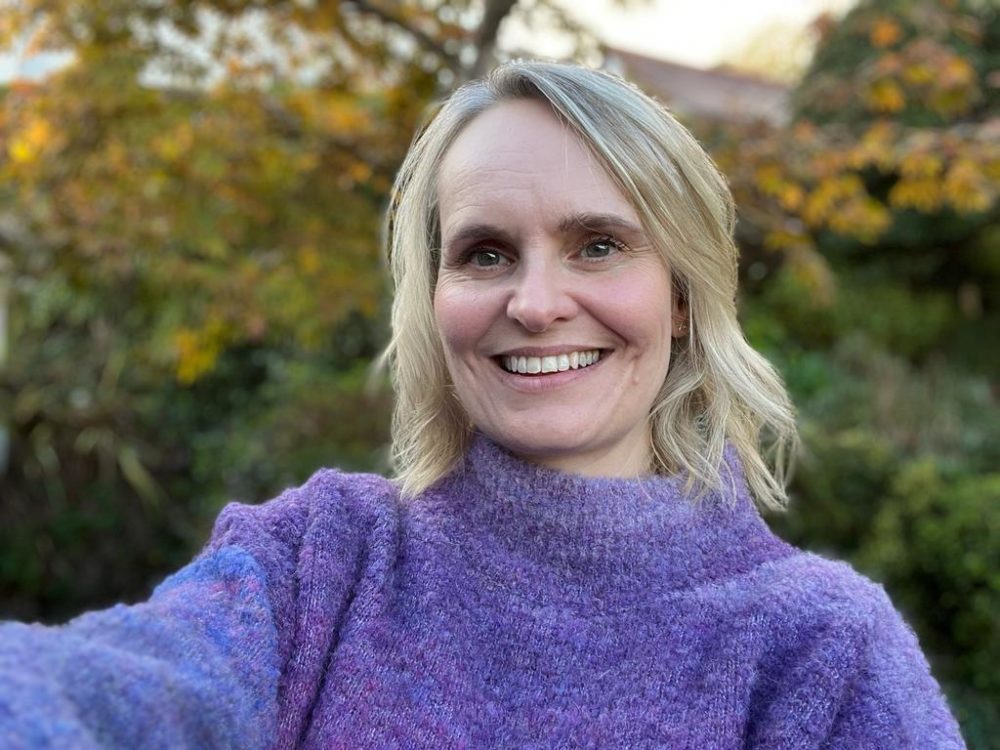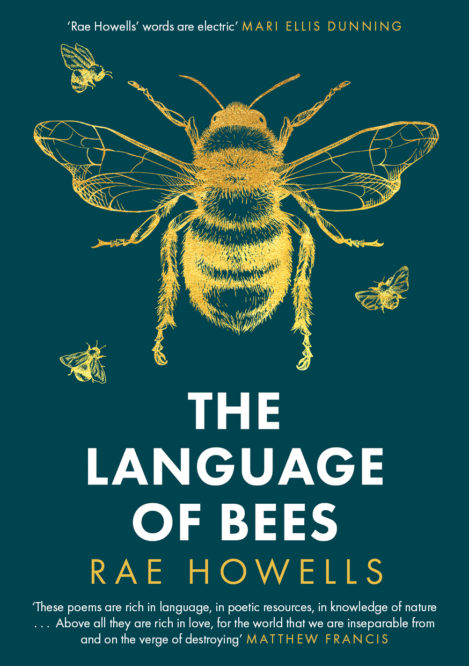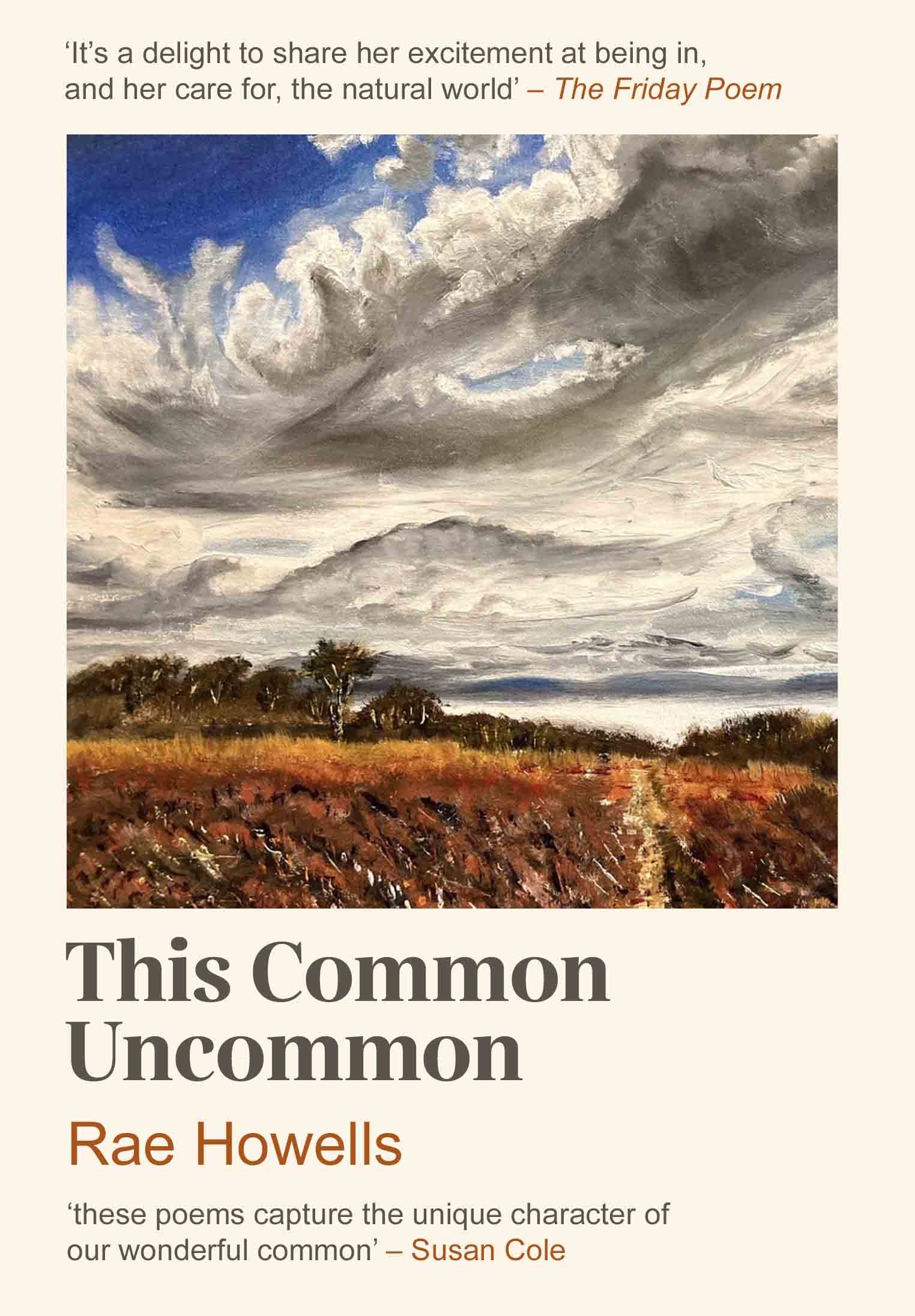On being a poet in Wales: Rae Howells

Rae Howells
Did you know that bumble bees can vibrate their bodies at the pitch of a middle C? It’s a remarkable skill, something they do to get flowers to release their pollen.
I have written a poem about it, and it’s one of my favourite ones to read aloud. It gets a great reaction from the audience, mainly, I think, because it is joyful.
“I am more than you,” the poem declares. “I am a musical note.”
There is defiance, and delight, and magic in trying to climb inside a bee’s perspective and understand how it must feel to resonate at that perfect pitch, to be in such harmony with the world.
It’s this joy in nature that has spurred me to write both of my poetry collections, though in different ways.
First came the bee collection, The language of bees When it began to take shape, with its strands of new motherhood, miscarriage and family, my children and I happened to find a dying bumble bee on our suburban driveway.
I wrote a series of poems about her and about the precarity of world insect populations, which happened to be in the news at the time.
This single bee became significant, emblematic of something bigger than herself, bigger than all of us. Of a natural world in decline, of loss, of anxiety about the future – but also of colonies, societies, of the strength that comes when we work together.
Future Wales
Ultimately, through the collection, I wrestled with the question of what kind of future Wales I would bequeath to my daughters.
For most of my working life I have been a journalist, writing news stories about issues that matter. But when I took my bee poems to open mics and festivals, it was a revelation.
Here was a powerful, emotive way to engage with people who didn’t necessarily know much about bees, or magpies, or whichever of the species I had included in my book – they maybe hadn’t ever given them much thought.
But they really responded to knowing those things – that a bee can sonicate, and its pitch is a middle C.

Tools and devices
As poets we have a wonderful range of tools and devices at our fingertips. We can take imaginative leaps that you aren’t often permitted to take in a news article or a text book.
We can personify a plant or an animal and embody it, give it a voice, a motive, a perspective outside our human way of thinking.
We can imagine the future a thousand different ways, show (not tell) what things might be like in each different scenario. We can wonder. We can suppose. We can question.
We can use drama and emotion and hyperbole to take an audience on a journey in a powerful and direct way.
It wasn’t long after The language of bees was published that I discovered a housing developer had applied for planning permission to build houses on an 11-hectare area of common land, just on the edge of the estate where I live in Swansea.
Again, I wrestled with the question of the future Wales my daughters would one day inherit.
And so my writing became mainly letters, emails, and social media posts. A group of local residents banded together and we did our best to save this wild, green place.
Undisturbed habitat
West Cross Common has been neglected and is often dismissed as waste ground but for the insects, birds and animals in our neighbourhood this has been its attraction.
It offers undisturbed habitat, a refuge where they can find abundant food and safe places to live.
Once again, I tried to see things through animal eyes – but this time I tried to understand a whole common. It is a precious place, abundant with rarities – things you might think of as uncommon are commonplace here.
I wrote about everything from waxcap mushrooms to red list greenfinches, devil’s-bit scabious (habitat of the protected marsh fritillary butterfly), polecats, adders.
Below the surface there is peat – and most of the land is a bog, with a shimmering glade of bog asphodel flowers in summer.
The whole thing represents a vanishingly rare wet heathland that the Welsh Government has on its priority habitat lists. And so a new collection took shape: This Common Uncommon.
I wanted the collection to do two things – firstly get the message out, not just about what this precious common means to the animals and plants that live there, but also to the humans who live nearby.
Secondly, I wanted to record as much of it as possible so that we have some kind of record of the flora and fauna in case the worst happens and the development goes ahead.

Enclosures Act
I tread in the footsteps of John Clare, the original poet of the commons, who was devastated by the Enclosures Acts of the nineteenth century which destroyed his beloved local common, Helpston Green, and saw its wildness tamed, razed and fenced in for agriculture.
His record of a pre-agricultural Britain, and its wild and natural wonders, is still admired and beloved today.
Even if the development of West Cross Common does not go ahead, we have to recognise that climate change is forcing many species to the brink, and beyond. I see it as my job as a poet to try to record this world for the future, but more than that – to connect people with it now.
To re-establish our relationship with the natural world, in the hopes we can halt the nature crisis in its tracks.
Writing about bees taught me something. Climate change is a global problem, but it can have local solutions. Like the bees, we must work together, sonicate, each of us singing our part for the ultimate good of all.
In 2023 planning permission for 56 houses and 70 car parking spaces was granted on West Cross Common. However, the Welsh Government has yet to decide whether it can be deregistered as common land. There will be a public inquiry at the Village Hotel, Swansea from 6-8 August. Join the campaign’s Facebook group, West Cross Common, to keep up with the news or get more involved.
Rae Howells is a poet, journalist and lavender farmer from Swansea. Her debut collection, The language of bees, was shortlisted for Wales Book of the Year 2023. She has previously won the Rialto Nature & Place and Welsh poetry competitions and been featured widely in journals including Magma, The Rialto, Poetry Wales, New Welsh Review, Acumen and Poetry Ireland. A keen environmentalist and a believer in the restorative power of wild places, she is poet in residence at Llanelli Wetland Centre. Howells’ new poetry collection This Common Uncommon (£10) and her first collection The language of bees (£9) are both published by Parthian Books.
Support our Nation today
For the price of a cup of coffee a month you can help us create an independent, not-for-profit, national news service for the people of Wales, by the people of Wales.







We take our bees seriously on the Mawddach, I’m graced by the attentions of the larger woodland bees and in future shall carry my pitch pipes when in the garden…
A duet with a bumble bee must rank with singing with whales…
Another request for the Library…